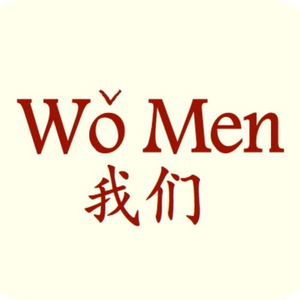
Wo Men Podcast
Wǒ Men Podcast
Wo Men Podcast hosted by Wǒ Men Podcast
- 38 minutes 28 secondsBehind the Lines of China's Zero Covid StrategyThe latest mass outbreak of COVID-19 in China has impacted people's lives, with over 5000 new cases reported each day this week. While the numbers are small compared with what other countries have experienced during the pandemic, the most recent outbreak is the largest in China since 2020. Many residents in major cities like Shanghai and the tech hub of Shenzhen have been told to remain in their homes, and officials in several jurisdictions have given orders for full or partial lockdowns. After feeling safe and protected for the past two years by China's Zero Covid Policy, Chinese people have, for the first time, started to question whether this policy is effectively dealing with the new omicron variant.
Our Co-Host Yajun is now on her 16th day of being forced to stay inside her apartment complex due to a case of COVID being reported in the same compound. Co-Host Karoline was just released from mandatory quarantine after returning to China from a trip overseas. In this episode, Yajun and Karoline shared their personal experiences and observations of how public opinion has started to shift regarding China's Zero COVID strategy.
29 March 2022, 9:47 am - 35 minutes 18 secondsSpiritual Journey: One woman's experience with shamanism
When people feel confused or uncertain about their lives, some turn to fortune-tellers or psychics for guidance and advice. China has a long tradition of fortune-telling, soothsaying, and even exorcisms and shamanism.
Those living in the Northeastern part of the country consult people known as Daxian (大仙), which can be translated as “spirit mediums” or “spirit possessors”). Daxian are the representatives of a local religion, combining shamanism and animal worship (including weasels, foxes, mice, snakes, and hedgehogs). According to legend, once these animal spirits possess their bodies, the daxian can cure disease or predict the future.
We talk to Vicky, a native of Northeastern China. She describes her personal experiences of consulting a daxian for help when she had difficulties maintaining a long-term relationship. She also shares her recent discovery about the extent her family was involved with this local religion.
9 March 2022, 8:06 am - 27 minutes 50 secondsThe Wo Men Podcast 2021 Year in Review Episode
It's an annual tradition. Yajun, Jingjing, and Karoline, the three cohosts of the Wo Men Podcast, got together virtually to discuss their experiences in 2021 and share their memories of the year that was. They also talked about what they were looking forward to most in 2022. Spoiler Alert: They would like to see each other and are hopeful that China will open its borders soon so that family and friends can finally be reunited. Fingers crossed!
5 January 2022, 7:30 am - 40 minutes 26 secondsThe Future is Lying Flat
In China, there have been generations that “stood up” (站起来 zhànqǐlai) and generations that “jumped into the sea” (下海 xiàhǎi), but many young people in China today are choosing instead to just “lie down and chill.”
The term “Lying Flat” (躺平 tǎngpíng) became popular following a blog post entitled “Lying Flat is Justice” (躺平即是正义 tǎngpíng jíshì zhèngyì) went viral earlier this year. This call to inaction inspired many to choose a lifestyle that rejected the social pressure to work hard and conform. Why bother striving if the “Chinese Dream” of a high-paying job, buying a house, and checking all the boxes for success seem impossible?
Many young people are also turning their backs on the corporate grind and risky start-up jobs to find a stable gig with China’s biggest employer: the government. Why are young people lining up for “less competitive” jobs in the civil service? After 30 years of standing up and another 30 years of jumping in the sea of entrepreneurship, why are so many young people choosing a life of less struggle?
To answer these questions, we talked with Kailai, a student at one of China’s top universities, who explains to us why the growing gap between expectations and reality is causing young people to question assumptions about what is the meaning of a successful life and why when the going gets tough, sometimes the best thing you can do is take a step back, lie down, and chill.
8 December 2021, 1:29 am - 31 minutes 42 seconds20 Years Later: How did Chinese students react to the News of 9/11?
2021 marks the 20th anniversary of the September 11 attacks carried out by the terrorist group Al-Qaeda against targets in the United States. Over 3000 people died as a result, and the world was forever changed. Since then, the United States has faced many challenges, including a long-running military occupation of Afghanistan, which ended only this year. The past two decades have also seen a steadily rising China seeking to challenge US hegemony and disrupt the existing international order. What did 9/11 mean for China and the US-China relationship? How did people in China understand and react to the news that the United States had been attacked?
In this episode, Karoline and Yajun share their personal stories of hearing about 9/11 and how those experiences have affected their later careers as cultural intermediaries between the world and China. They also reflect on how their careers have been affected by the complicated US-China relationship and consider how they can contribute to improving mutual understanding between the world’s two largest economies.
13 September 2021, 12:34 pm - 32 minutes 44 secondsGombo's Prayers on the Plateau
When most people think about China in the 21st century, they picture the big coastal megacities like Beijing or Shanghai. But that’s only a small part of the picture. For this episode, we traveled out west to Qinghai Province, which has an area the size of France but a population of just six million people. The region where Qinghai and southern Gansu Province meet has long been a frontier zone, a point of contact for many different ethnic groups, including people who still live a nomadic lifestyle. Today it is one of the poorest regions in China and has been the focus of intensive development even as many people who live there try and preserve their traditional lifestyle and distinctive culture.
We talk to Gombo, who was raised in a Mongolian nomadic family and went on to be the first in his area to graduate from college. Gombo describes his life growing up in a nomad camp, how Tibetan Buddhism continues to be a significant part of his life, and how he pursued his education and career in modern China. Today, Gombo works in the travel industry with the company Elevated Trips based out of Xining.
Gombo is also a very talented musician and he shared with us some of his songs which you can hear as part of the episode.
19 July 2021, 10:16 am - 44 minutes 50 secondsDownsizing in Dali
Are you tired of big city life? Ever think of escaping the noise, dust, and exhausting pace of life for a slice of the country? For many young people in China, work means 12-hour days, six days a week, with a long and crowded commute to and from work. No wonder so many people are considering trading urban living for a rural lifestyle. In recent years, Dali has become a magnet for writers, musicians, artists, painters, and people looking to simplify their lives. In this episode, Karoline Kan talks to Feather, who moved to Dali from Beijing, about her lifestyle change.
21 June 2021, 10:41 am - 23 minutes 40 secondsThe cost of beauty: Why is cosmetic surgery so popular in China?
The Medical Aesthetics industry (what your grandmother calls “plastic surgery”) is booming in China. According to Deloitte, China's aesthetic medicine market grew from 65 billion yuan (US$10 billion) in 2015 to 175 billion yuan in 2019. That’s three times faster than the global industry average.
Why are Chinese women -- and men -- so crazy about beauty treatments? Don’t they worry about the risks and possible side effects? Today we talked to Guli Ai, a consumer with ten years of experience using aesthetics treatment. Guli explains her journey in pursuit of beauty and why she’s not afraid to take advantage of the benefits of medical science in her quest for perfection.
24 May 2021, 10:37 am - 36 minutes 2 secondsBuzzing and Bubbling Business Start-ups for the Covid-19 Era
While many companies have felt the impact of Covid-19, some courageous entrepreneurs in China are still willing to take risks and launch new ventures in this time of global economic fluctuations.
Our guest today, Lysa Wei, is one of them. In 2020, Lysa started her own company bringing hard seltzer to the China market. Low-calories and sugar-free, hard seltzers have become one of the world’s hottest (or coldest, depending on how you like drinks served) alcoholic beverages in the world.
In this episode, Lysa explains the opportunities and the challenges of starting a company in the Covid era. She also shares how to introduce a new alcoholic beverage to Chinese millennials who like to get their buzz differently from their parents or older siblings.
23 April 2021, 1:49 am - 37 minutes 15 secondsPromoting LGBTQ rights in today's China
The LGBTQ+ community in China is largely out of sight, and awareness of ideas relating to sexual equality is still very low.
Ying, who calls herself Iron, is a feminist, activist, and director of the Beijing LGBT Center. She is one of the most prominent activists promoting LGBT rights in China and has played a vital role in arranging mental health services for the LGBTQ community. For the first time, a national survey has been conducted to look at the lives of the LGBTQ community in China.
Ying joins our show today to discuss her personal experience as a member of this community and how she developed her passion into a career. She also shares with us her views on the progress – and remaining challenges – for activists promoting LGBTQ rights in the PRC.
30 March 2021, 1:23 am - 39 minutes 1 secondTraveling for Change
Many people have thought about quitting their 9-to-5 job to travel around the world, but few people carry out their plan. One couple made it happen and found a new career inspiration and life direction along the way.
Faye and Celyn live in Beijing. Faye worked at a Chinese agricultural company. Celyn (celynbricker.com) was an artist who had always been interested in using art as a lens to look at social issues. They quit their jobs, left Beijing with just two backpacks, and arrived in Africa as the first stop. They planned to travel along the human migration route and record the highlights of their journey as a documentary. They didn’t have a clear agenda in terms of what stories they were going to collect, but it did not take them long before they found that climate change was a term that frequently appeared in conversations with local communities.
Climate change interrupted people’s agricultural routines, caused conflicts between different groups of people, and threatened local religions' survival. It even contributed to the rise of the HIV infection rate in certain areas as climate change affected the kinds of economic opportunities that had previously been empowering women.
Along the way, they also learned the wisdom to live harmoniously with nature.
After returning to China, the couple decided to focus on climate-related art projects and founded Celu Studio to provide a public platform to learn more and take positive action.
In this episode, Karoline Kan sits down with Faye and Celyn to learn more about their journey and their new platform for tackling one of the world’s most important and pressing issues.
4 March 2021, 3:21 am - More Episodes? Get the App
- http://womenpodcast.net
- en-us
Your feedback is valuable to us. Should you encounter any bugs, glitches, lack of functionality or other problems, please email us on [email protected] or join Moon.FM Telegram Group where you can talk directly to the dev team who are happy to answer any queries.
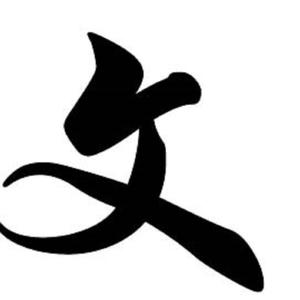 Chinese Literature Podcast
Chinese Literature Podcast
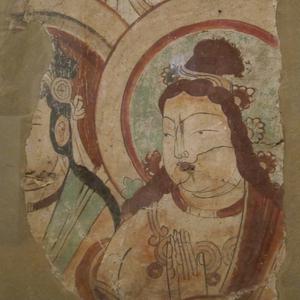 Barbarians at the Gate
Barbarians at the Gate
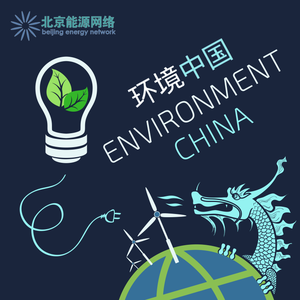 Environment China
Environment China
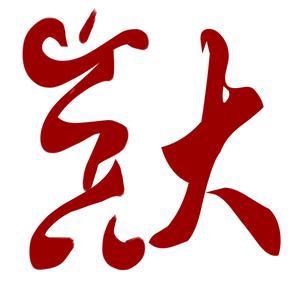 UPenn Center for the Study of Contemporary China
UPenn Center for the Study of Contemporary China
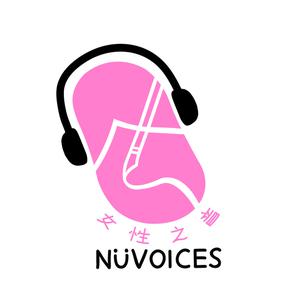 NüVoices
NüVoices